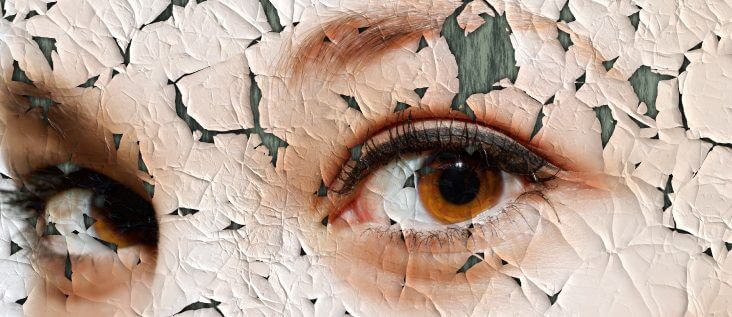What Is Dry Eye Syndrome?
We don’t just have tears when we cry. Our eyes are always producing tears! The function of the tear film that coats the surface of the eyes is not only to prevent dryness, but they act as a protective barrier from viruses and bacteria as well! Dry Eye Syndrome occurs when the tear film doesn’t function properly.
What Causes Dry Eyes?
There are many different causes of dry eyes syndrome. Dry eyes often occur because the eyes don’t produce the right amount of tears. Or because the tears evaporate off the surface of the eye too quickly.
Tears aren’t water! Tears are a lot more complex than you may think. The tear film is made up of three components; a mucin layer, lipid layer, and aqueous layer (water). If one or more of this tear film cocktail is off, the resulting symptoms can be dry eyes.
There may be a disruption in tear film function because of many reasons; some things which can cause dry eyes are;
- Contact lenses
- MGD (Meibomian gland dysfunction)
- Eye allergies
- Pregnancy
- Sjögren’s Syndrome
- Laser Eye Surgery
- Certain Medications
- Smoking
Symptoms Of Dry Eyes
Symptoms of dry eye syndrome will vary from person to person. But, here are the common symptoms that many people experience;
Red Eyes
- A burning or stinging feeling
- Eye pain
- Sandy or gritty feeling
- Blurry vision
- Eye fatigue
- Watery eyes
Dry Eye Syndrome Treatment
Dry eye syndrome is not something that should be taken lightly. Along with discomfort, it can cause temporary vision loss, and in severe causes permanent vision loss and damage. But, there’s a silver lining to this subject. In most cases, dry eye syndrome can be managed. So if you suffer from this common problem, there are things you can do along with treatments that can help!
There are many treatment options to help with dry eyes. An optometrist will determine the best plan for treatment, based on the cause of the dry eyes. Dependant on the root cause of the problem, some solutions that are options for dry eye treatment are;
- Artificial tears/eye lubricants
- Prescription Medications (Restasis and Xiidra are common medications for dry eye treatment)
- Punctal plugs
- Change in lid care hygiene (Usually recommended to help with MGD)
- Vitamin supplements (Increased diet of Omega 3 fatty acids)
- 20/20 rule
- Reducing screen time (computers, phones, tablets)
If you think you suffer from dry eye syndrome, be sure to inform your eye doctor of all, medications you may be on, lifestyle choices as well as informing him of your health history. This will help your doctor identify the root of your dry eyes and the best plan of action to treat it!
If you suffer from dry eyes, give us a phone call at (403) 255-2826 or book online today with one of our optometrists. We have helped many patients in Calgary with solutions for dry eyes treatment! There’s no reason why you shouldn’t see comfortably!
Article Written By: Trina Vanaalst, Licensed Optician & Registered Contact Lens Practitioner

